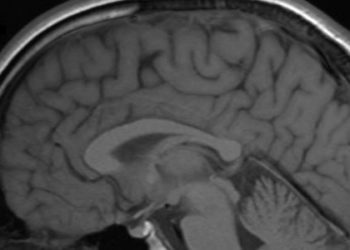Promising phase 2 results for new plaque psoriasis therapy
1. Guselkumab, an anti-interleukin-23 antibody, produced better responses in patients with moderate to severe plaque psoriasis than standard anti-TNF alpha therapy.
Evidence Rating Level: 1 (Excellent)
Study Rundown: Interleukin-23 promotes inflammation and is expressed at high levels in psoriasis. Guselkumab is a monoclonal antibody which targets interleukin-23 and inhibits its effects. This phase 2 trial compared various doses of guselkumab to placebo and adalimumab, an anti-TNF alpha antibody that is currently used to treat psoriasis.
The results showed that at a dose of 50-mg or higher every 3 months or so, guselkumab produced a significant response in about 80-85% of patients whereas standard therapy only produced a response in about 60% of patients. There were a similar number of adverse events between the different treatments and higher doses of guselkumab were not associated with more side effects. Longer studies would be needed to evaluate the complete safety profile of guselkumab.
This study sheds light on the importance of interleukin-23 in the pathogenesis of psoriasis. Another antibody, ustekinumab, inhibits both interleukin-12 and interleukin-23 and has been shown to be effective in psoriasis. The efficacy of guselkumab suggests that interleukin-23 may be more important than interleukin-12 in psoriasis.
Click to read the study, published today in NEJM
Relevant Reading: Guselkumab (an IL-23-specific mAb) demonstrates clinical and molecular response in patients with moderate-to-severe psoriasis
In-Depth [randomized controlled trial]: This phase 2 study involved about 300 patients with psoriasis involving at least 10% of the body and judged to be at least 3 out of 5 on the Physician’s Global Assessment (PGA) and at least 12 out of 72 on the Psoriasis Area and Severity Index. Patients were followed for 52 weeks. The primary endpoint was the proportion of patients with cleared or minimal psoriasis at week 16. The primary endpoint was reached in 7% of patients on placebo, 59% of patients on adalimumab and 79-86% of patients on doses of guselkumab of 50, 100 or 200mg. Response rates were lower in patients receiving either 5 or 15mg of guselkumab. The proportion of patients whose psoriasis cleared completely was 30% in the adalimumab group and 45% in patients receiving 100mg of guselkumab.
The rate of patients discontinuing treatment due to adverse events was low and similar across the placebo, guselkumab and adalimumab groups. Infections were the most common adverse event throughout the study period, in both antibody groups. Of note, three patients in the guselkumab group had cardiovascular events, including one death from a myocardial infarction.
Image: PD
©2015 2 Minute Medicine, Inc. All rights reserved. No works may be reproduced without expressed written consent from 2 Minute Medicine, Inc. Inquire about licensing here. No article should be construed as medical advice and is not intended as such by the authors or by 2 Minute Medicine, Inc.






![Adverse pregnancy outcomes associated with thrombophilias [Classics Series]](https://www.2minutemedicine.com/wp-content/uploads/2015/07/Classics-2-Minute-Medicine-e1436017941513-75x75.png)


